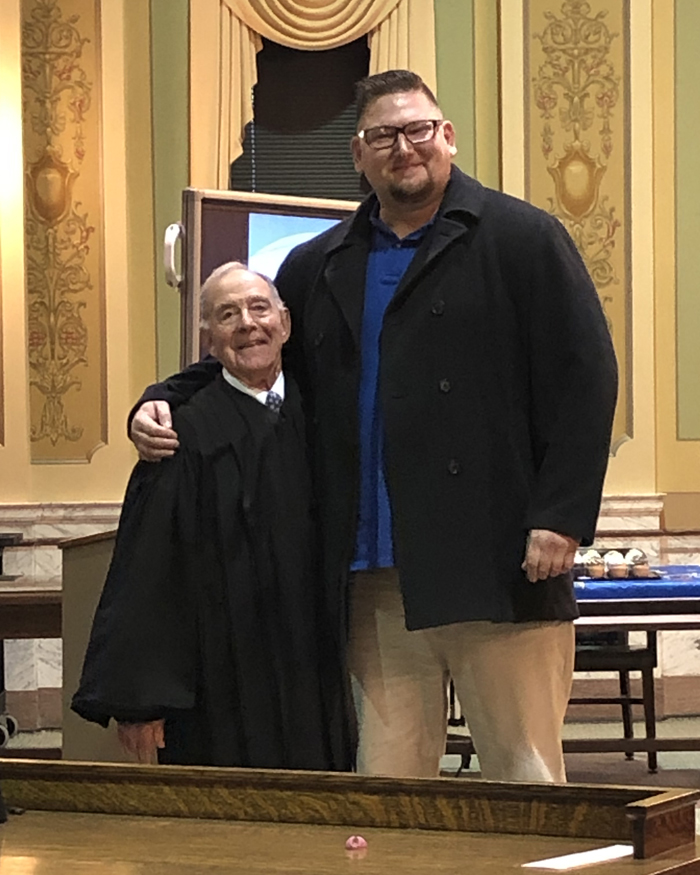
BY RICK COHLER
CONTRIBUTING WRITER
Our final segment of the alternative treatment court series
BROWN COUNTY – Brown County administers six alternative treatment courts where convicted defendants undergo rigorous screening and concentrated programming as a condition of parole — drug court, heroin/opioid court, DUI court, veterans court, young adult court and mental health court.
The standards for acceptance into the mental health court are similar to those of the other courts.
Violent offenders, those who used firearms or dangerous weapons in crimes, sexually based offenders, or enterprise drug dealers are not eligible for the treatment courts according to Mark VandenHoogen, criminal justice services manager for Brown County Health and Human Services.
In most of the cases, people ended up in court in the first place due to willfully breaking the law with drug use, driving under the influence or some other outside influence in their lives.
The exception is the mental health court where defendants were convicted for acts which were enhanced due to their mental health issues, most often schizophrenia or bi-polar conditions.
The mental health court has a recidivism rate of about 38% five years after a participant completes the program compared to 65% for others who have not been in the treatment courts.
The Brown County Mental Health Court accepts individuals post-conviction who already have a mental health diagnosis and who have some form of insurance to assist in payment for services.
They are monitored on a regular basis until stabilized with the expectation that upon stabilization they can be successful in the community.
Applicants undergo a mental health screening which is used to locate any underlying mental health disorders.
A case worker is then assigned who makes several visits to the participant each week and the participant is required to appear before the judge of their court each week.
Those accepted into the court have frequent contact with their case worker and probation agent, must fulfill all treatment counselors and physicians.
They are also subject to random drug tests.
As they progress through the program, those appearances are scaled back.
For participants who fail to comply, various sanctions can be applied.
One of the participants appearing before the judge at a recent hearing had some struggles several weeks ago.
He wrote an essay about his behavior and the steps taken to improve it. “All the other courts can potentially create a situation where a person can can go and never repeat their behavior,” Brown County Chief Judge Donald Zuidmulder said. “The mental health court is unique because our expectation is not that the mental illness goes away because it will not. What we hopefully accomplish is to get a regimen of treatment in place that the participant acknowledges it is so beneficial that they want to continue in that treatment. That regimen then contributes to the quality of life of our whole community. Our law enforcement and other agencies are relieved from the attention these participants require and the participant has a positive outlook on life and incentive to stay with their stability. What more could we ask for?”
For Zuidmulder, his role in the mental health court has been rewarding.
“I would say in my long public service I would take the greatest pride in the mental health court,” Zuidmulder said. “Because I think it so contributes to what I consider the betterment of the town.”
